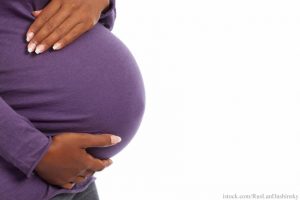The Listeria monocytogenes outbreak linked to recalled Queseria Bendita soft cheeses and sour cream is a reminder to pregnant women that they should avoid certain foods. One pregnant woman in Washington state was sickened in this outbreak. Some foods are riskier than others because they are more likely to contain pathogenic bacteria, especially Listeria, that can cause serious complications.
 The outbreak linked to Queseria Bendita Panela, Queso Fresco, Cotija, and Requeson cheeses has sickened three people and killed one person. Attorney Fred Pritzker, who has represented many clients sickened by this pathogenic bacteria, said, “It is always tragic when people are sickened and killed by contaminated food. Processors have a legal responsibility to make sure the foods they sell are wholesome and free of pathogenic bacteria.”
The outbreak linked to Queseria Bendita Panela, Queso Fresco, Cotija, and Requeson cheeses has sickened three people and killed one person. Attorney Fred Pritzker, who has represented many clients sickened by this pathogenic bacteria, said, “It is always tragic when people are sickened and killed by contaminated food. Processors have a legal responsibility to make sure the foods they sell are wholesome and free of pathogenic bacteria.”
Soft cheeses can be contaminated with Listeria because they have a high water content and relatively neutral pH, which facilitates bacterial growth. In addition, Listeria can grow at refrigerator and freezer temperatures down to 0°F, so even though these products are refrigerated bacteria will reproduce and grow in them.
Other foods that pregnant women should avoid include deli meats; raw or unpasteurized milk and cider; cheese, both hard and soft, made from raw milk; unheated hot dogs; raw bean sprouts; smoked meats and fish; undercooked meat, poultry, and seafood; and undercooked or raw eggs. All of these foods pose a higher risk of bacterial contamination and food poisoning.
Listeria is especially dangerous for pregnant women because of the way the bacteria acts. It can penetrate the placenta, where it is hidden from the woman’s immune system as a natural consequence of pregnancy. The bacteria grows there, then can erupt in large numbers, causing miscarriage, stillbirth, and infection of the newborn baby.
Symptoms of a Listeria monocytogenes infection in pregnant women include fever, headache, muscle aches, flu-like symptoms, backache, nausea, and diarrhea, but they are usually quite mild. If you are pregnant, have eaten soft cheese or other risky foods, and develop a mild, flu-like illness, see your doctor immediately. Antibiotics are usually prescribed to fight this infection, and the earlier you are treated the better. Early treatment is the best way to avoid complications.




